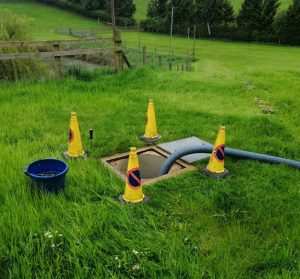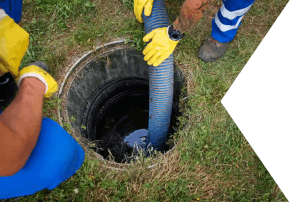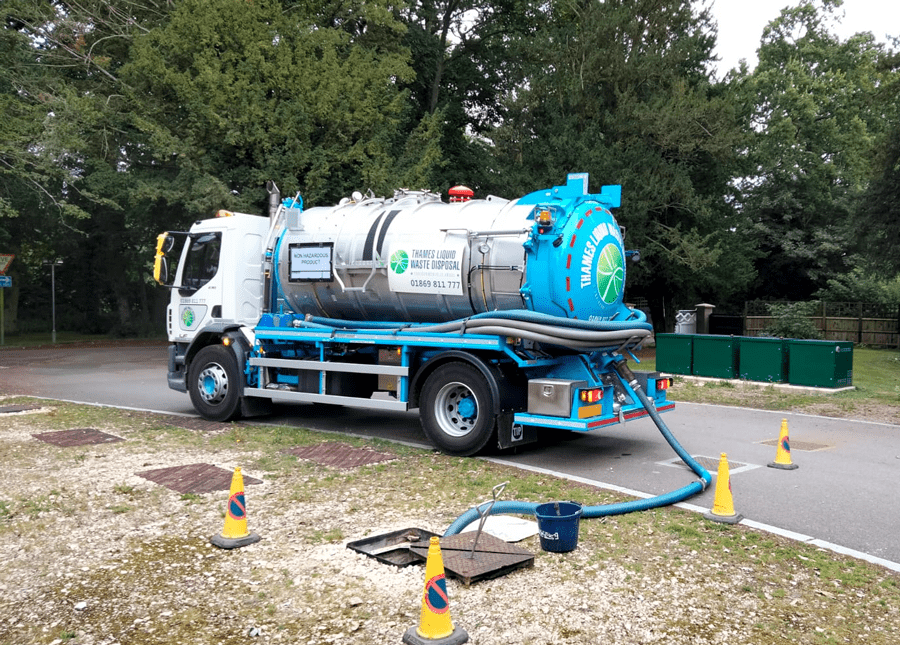Septic tanks are crucial in managing household waste, especially in rural areas without access to municipal sewage systems. Properly maintaining these systems is essential to ensure they function effectively and protect both household and environmental health.
Neglecting septic tank care can lead to severe consequences, including costly repairs and environmental damage.
Regular septic tank maintenance is about keeping your plumbing in good shape and safeguarding your home and the surrounding environment.
By understanding the importance of routine care, homeowners can prevent system failures and contribute to a healthier ecosystem.
Understanding Septic Tanks
Septic tanks are underground wastewater treatment structures commonly used in areas without centralised sewer systems.
They use a combination of nature and proven technology to treat wastewater from household plumbing produced by bathrooms, kitchen drains, and laundry.
Understanding how these systems work is the first step in appreciating the importance of their maintenance.
The main components of a septic system include a septic tank and a drain field.
Wastewater from your home flows into the septic tank, where solids settle to the bottom, and the effluent flows out to the drain field. Regular maintenance ensures that these components continue to function correctly, preventing backups and overflows.

Signs Your Septic Tank Needs Maintenance
One of the earliest signs that your septic tank needs attention is slow-draining sinks and toilets.
This could indicate that the tank is full or that there’s a blockage in the system. Ignoring these signs can lead to more severe problems, including complete system failure.
Unpleasant odours around your property are another clear indication that your septic tank requires maintenance.
These smells can be not only offensive but also hazardous to health. Additionally, unusually lush and green patches in your yard can signal that wastewater is leaking from the system and fertilising the grass above.
Benefits of Regular Septic Tank Maintenance
Regular maintenance of your septic tank can prevent system failures and the associated costly repairs.
By having your system inspected and pumped periodically, you can catch minor issues before they become major problems. This proactive approach extends the lifespan of your septic system and keeps it running efficiently.
Maintaining your septic system also protects the environment. Proper care prevents contaminants from entering the groundwater, streams, and lakes.
This is crucial in preserving local ecosystems and ensuring that the water supply remains clean and safe for all.

Maintenance Practices
Regular inspections by professionals are a cornerstone of effective septic tank maintenance.
Experts can identify potential issues early and recommend appropriate actions to address them. It is generally advised to have your septic tank inspected every three to five years.
Pumping the septic tank is another critical maintenance task. This involves removing the sludge that accumulates at the bottom of the tank, which, if left unchecked, can clog the system and cause backups.
Proper waste disposal practices, such as not flushing non-biodegradable items, also play a significant role in maintaining a healthy septic system.
Environmental Impact
A well-maintained septic system helps prevent the contamination of soil and water.
When a septic system fails, untreated wastewater can seep into the ground, introducing harmful bacteria and chemicals into the environment. This can have devastating effects on local wildlife and water quality.
Regular septic maintenance mitigates these risks by ensuring that the system operates as intended.
By keeping your septic system in good condition, you are contributing to the broader effort of environmental conservation and protecting natural resources for future generations.
Cost-Effectiveness
While regular septic tank maintenance involves some expense, it is far less costly than repairing or replacing a failed system.
Addressing minor issues through routine inspections and pumping is a financially sound strategy that can save homeowners thousands of pounds in the long run.
Proactive care of your septic system also means avoiding the inconvenience and potential health hazards of a malfunctioning system.
Investing in regular maintenance ensures peace of mind, knowing that your home’s wastewater management is reliable and efficient.

Tips for Homeowners
Homeowners can take several steps to support their septic system’s health. Simple practices, such as conserving water and spreading out laundry over the week, can reduce the load on the system.
Avoiding the disposal of grease, chemicals, and non-biodegradable items down the drain also helps maintain system functionality.
Scheduling routine check-ups with a professional service provider is essential.
Educating family members about what can and cannot go down the drain ensures everyone in the household contributes to the system’s upkeep. These proactive steps are vital in maintaining a trouble-free septic system.
Conclusion
Regular septic tank maintenance is crucial for preventing system failures, protecting the environment, and saving money in the long term.
By understanding the signs that indicate maintenance is needed and adopting best practices for care, homeowners can ensure their septic systems remain efficient and effective.
Taking action now by scheduling a professional inspection and committing to regular maintenance can prevent future problems. A well-maintained septic system is an investment in the health of your home and the surrounding environment.
For expert septic tank maintenance and inspection services, contact Thames Liquid Waste Disposal today.
Our professional team is here to help ensure your system remains in top condition. Visit our website for more information and to schedule an appointment.


